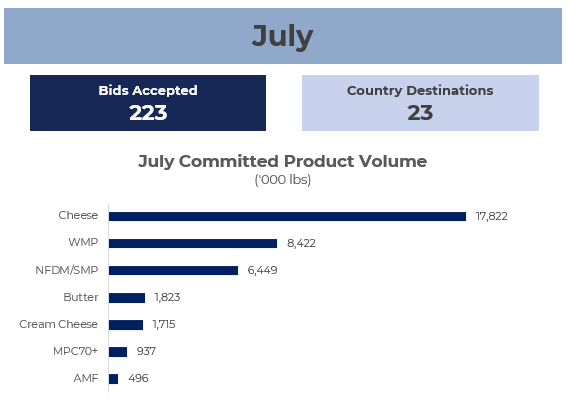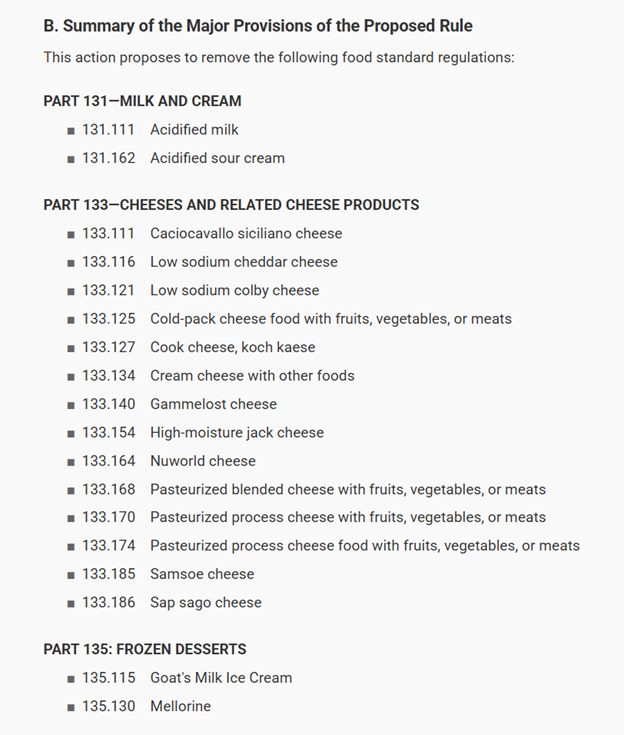The National Milk Producers Federation (NMPF), U.S. Dairy Export Council (USDEC) and the Consortium for Common Food Names (CCFN) celebrated today’s signing of a new U.S.–Indonesia trade agreement that would provide key market access expansions and protections for American dairy products.
Following years of USDEC, NMPF and CCFN advocacy, the deal will eliminate tariffs on all U.S. dairy exports; recognize U.S. regulatory oversight, including by listing all U.S. dairy facilities and accepting dairy certificates issued by U.S. regulatory authorities; and commit to protecting 40 common cheese names like “parmesan.” U.S. dairy exporters have long faced challenges with Indonesia’s excessively slow and burdensome facility registration process, making the issue’s resolution critical.
“This important agreement enhances the strong and growing relationship we’ve developed with Indonesia’s government and dairy industry,” said Krysta Harden, president and CEO of USDEC. “Through sustained engagement, we’ve laid a solid foundation for partnership. This deal reinforces that progress and positions U.S. dairy to expand its capacity to serve as a reliable partner in supporting Indonesia’s dairy sector and nutrition goals.”
The agreement builds on the U.S.–Indonesia Dairy Partnership, launched in 2024 to deepen cooperation across multiple fronts. As part of this collaboration, USDEC partnered with Indonesian institutions to support the government’s Free and Nutritious School Meals initiative, which includes the goal of providing school milk to students.
USDEC and NMPF also signed a memorandum of understanding (MOU) with the Indonesian Chamber of Commerce and Industry (KADIN) last May to expand dairy trade and strengthen commercial ties. USDEC also signed a MOU with the Indonesian Food and Beverage Industry Association (GAPMMI) last October. A USDEC-GAPMMI roundtable led by USDA Under Secretary for Trade and Foreign Agricultural Affairs Luke Lindberg was held earlier this month to deepen that connection.
“Indonesia is the fourth-most populous country in the world and, it’s a critical market for U.S. dairy farmers,” said Gregg Doud, president and CEO of NMPF. “Thank you to Ambassador Greer and the USTR team for securing expanded access that will directly translate into stronger demand for U.S. dairy products.”
“The common names protections included in this agreement are especially important for America’s farmers and exporters,” said Jaime Castaneda, executive director of CCFN. “Ensuring U.S. producers can continue to market and sell products like ‘parmesan’ and ‘feta’ in Indonesia without unfair restrictions helps preserve export opportunities and supports the livelihoods of farmers and manufacturers across the United States.”
Indonesia is currently the eighth-largest export market for U.S. dairy products. U.S. dairy exports to Indonesia in 2025 totaled $222 million, including strong demand for milk powders, whey products, cheese and other dairy ingredients. The agreement is the ninth trade deal secured to date by the Administration that includes new market access for U.S. dairy products, including an agreement signed with Taiwan last week. USDEC, NMPF and CCFN will continue to work with the U.S. and Indonesian governments to swiftly and fully implement the agreement’s provisions.







